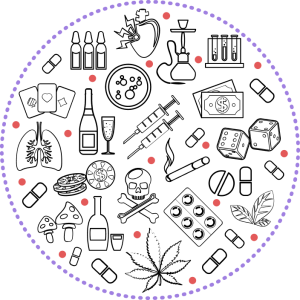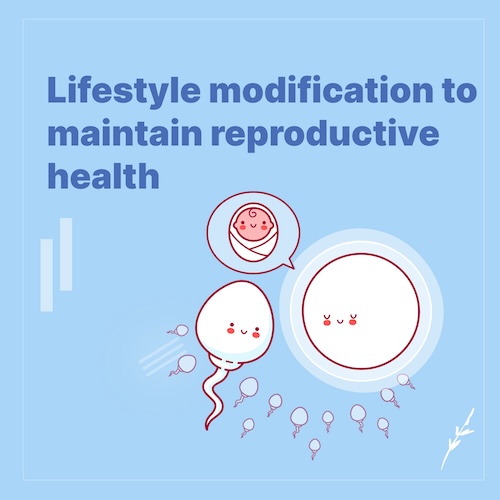Cigarettes, hookah, alcohol and drugs in failure of conception
Unhealthy habits such as cigarette smoking, hookah (shisha) use, alcohol consumption, and drug abuse are widespread across many societies, particularly among people of reproductive age. While these behaviors are often viewed as social, recreational, or stress-relieving, scientific evidence clearly shows that they can have serious and long-lasting consequences for fertility and for the health of future children.
Fertility is a delicate biological process that depends on healthy hormones, intact genetic material, proper blood flow, and well-functioning reproductive organs. Substances like nicotine, alcohol, and drugs disrupt these systems at multiple levels. In many cases, the damage is gradual and silent, meaning individuals may not realize the impact until they experience difficulty conceiving or recurrent pregnancy loss.
Cigarettes and Fertility
Cigarette smoking is one of the most well-documented lifestyle factors that negatively affects fertility in both men and women. Tobacco smoke contains thousands of toxic chemicals, including nicotine, carbon monoxide, heavy metals, and carcinogens, many of which directly damage reproductive cells.
Effects on Male Fertility
In men, smoking has been shown to:
- Reduce sperm count and concentration
- Decrease sperm motility (movement)
- Increase abnormal sperm morphology
- Cause significant DNA fragmentation in sperm
Damaged sperm DNA not only reduces the likelihood of fertilization but also increases the risk of miscarriage and genetic abnormalities in embryos. Smoking also impairs blood flow to the penis, increasing the risk of erectile dysfunction and reducing sexual performance.
Effects on Female Fertility
In women, smoking can:
- Accelerate ovarian aging
- Reduce ovarian reserve
- Damage egg quality and DNA
- Disrupt ovulation and menstrual cycles
Smoking also reduces blood flow to the uterus, leading to a thinner uterine lining that is less capable of supporting implantation. Women who smoke are at higher risk of infertility, ectopic pregnancy, miscarriage, and early menopause.
Studies suggest that smoking can reduce fertility by up to 50% and delay conception by one to two years. Even in assisted reproductive treatments such as IVF, smokers have significantly lower success rates compared to non-smokers.
Hookah (Shisha) and Fertility
Hookah, also known as shisha, narghile, or water pipe, is often mistakenly considered safer than cigarettes. This misconception is dangerous. In reality, hookah smoke can be equal or even more harmful than cigarette smoke.
A single hookah session can expose users to:
- Much higher volumes of smoke
- Large amounts of nicotine
- Elevated levels of carbon monoxide
- Heavy metals and toxic particles
Additionally, shared mouthpieces and water reservoirs can expose users to bacteria, fungi, and parasites.
Reproductive Impact
Hookah smoking has effects similar to or worse than cigarette smoking:
- Reduced sperm count and quality in men
- Impaired egg quality and ovulation in women
- Increased oxidative stress and DNA damage
- Hormonal disruption
Hookah use has also been linked to poor pregnancy outcomes, including:
- Low birth weight
- Preterm delivery
- Respiratory problems in newborns
- Impaired cognitive development
Avoiding hookah use is critical for couples who are trying to conceive or planning a healthy pregnancy.
Alcohol and Fertility
Alcohol is one of the most commonly consumed psychoactive substances worldwide, and its effects on fertility are often underestimated. While occasional light drinking may not cause immediate harm, regular or heavy alcohol consumption can significantly impair reproductive health.
Alcohol and Male Fertility
In men, alcohol can:
- Lower testosterone levels
- Reduce sperm production
- Increase abnormal sperm morphology
- Damage sperm DNA
Chronic alcohol use also affects liver function, which in turn disrupts hormone metabolism, further impairing fertility.
Alcohol and Female Fertility
In women, alcohol consumption can:
- Disrupt ovulation
- Reduce egg quality
- Interfere with implantation
- Increase miscarriage risk
Alcohol is especially dangerous during pregnancy. Exposure during early development can cause fetal alcohol spectrum disorders (FASD), which include growth restriction, facial abnormalities, cognitive impairment, and lifelong behavioral problems.
Research suggests that alcohol can reduce fertility by up to 40% and lower IVF success rates by approximately 20%. For couples trying to conceive, limiting or completely avoiding alcohol is strongly recommended.
Drugs and Fertility
Illicit drugs—including cocaine, heroin, methamphetamine, ecstasy, and cannabis—have profound negative effects on fertility and pregnancy outcomes. These substances alter brain chemistry, hormone regulation, and cellular function.
Effects on Men and Women
Drug use can:
- Reduce libido and sexual performance
- Suppress ovulation and sperm production
- Damage egg and sperm DNA
- Disrupt menstrual cycles and hormone balance
In men, drug abuse is associated with severe sperm abnormalities. In women, it increases the risk of ovulatory disorders and infertility.
Effects on Pregnancy and the Baby
Drug exposure during pregnancy can cause:
- Placental abruption
- Preterm birth
- Intrauterine growth restriction
- Neonatal abstinence syndrome (withdrawal in newborns)
Some studies indicate that drug use can reduce fertility by up to 60% and decrease IVF success rates by as much as 50%. Quitting drug use is essential not only for conception but also for the safety of the pregnancy and the child.
Can the Damage Be Reversed?
The good news is that many of the negative effects of smoking, alcohol, and drugs are at least partially reversible. Sperm production and egg development take time, so improvements may be seen several months after quitting harmful substances.
Benefits of quitting include:
- Improved sperm quality within 3–6 months
- Better ovulation and hormonal balance
- Higher success rates with natural conception and ART
- Reduced pregnancy complications
Early cessation leads to better outcomes, but it is never too late to improve reproductive health.
Final Thoughts
Cigarettes, hookah, alcohol, and drugs are among the most damaging lifestyle factors affecting fertility. They compromise reproductive function in both men and women by:
- Reducing sperm and egg quality
- Damaging genetic material
- Disrupting hormones
- Impairing blood flow
- Increasing miscarriage and birth defect risks
These substances also threaten the health of future children, even before conception occurs. Choosing to quit or avoid these habits is one of the most powerful steps couples can take to protect their fertility and ensure the best possible start for their child.
Adopting a healthy lifestyle is not only an investment in fertility—it is an investment in long-term health, emotional well-being, and family happiness.





